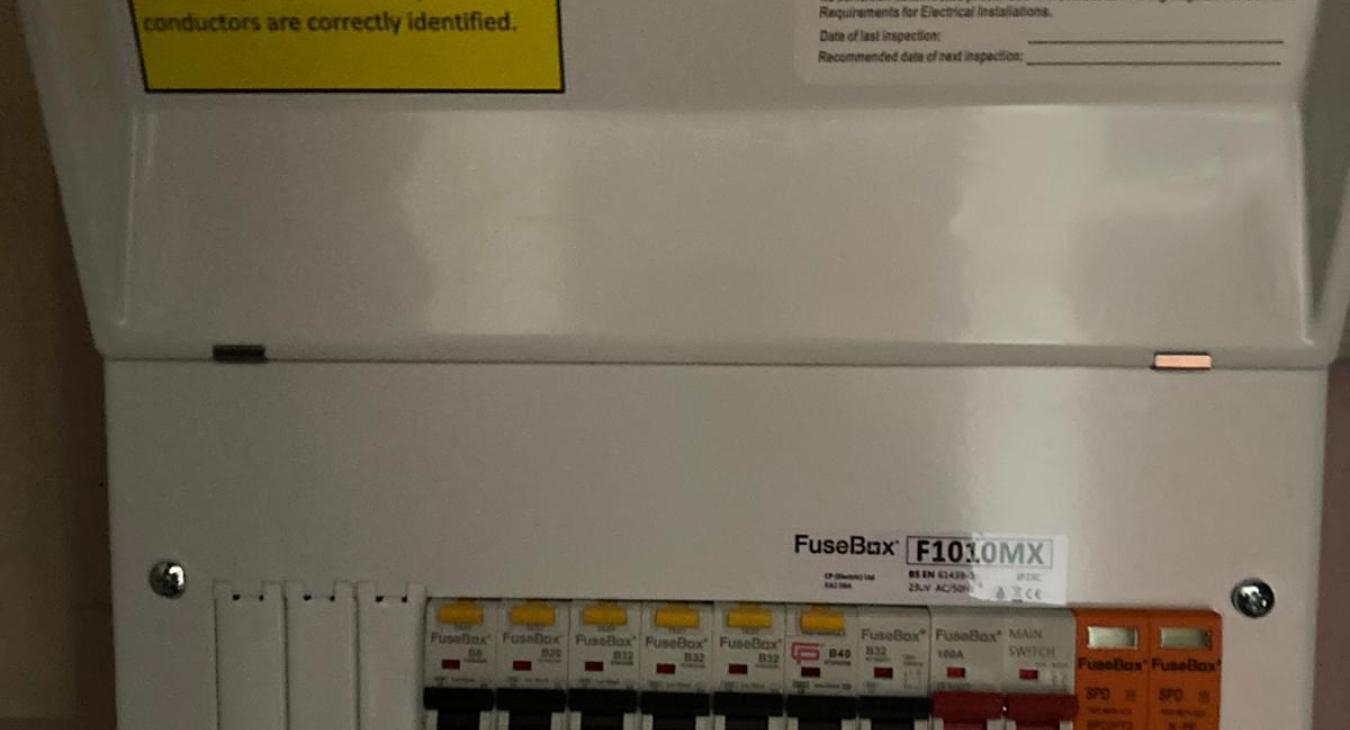
When should a consumer unit be upgraded?
New Mandatory Electrical Safety Checks in the Private Rental Sector in Coventry and Warwickshire… all you need to know
The commitment by the Government to bring mandatory electrical safety checks into force in the private rented sector has been welcomed by industry experts.
The government states that The Electrical Safety Standards in the Private Rented Sector (England) Regulations 2020 that has been laid before Parliament is implemented from July 1 this year, or from April 1 2021 for existing tenancies in England.
More than 18,000 house fires in England each year are caused by electricity, with independent research suggesting PRS properties are most at risk.
And research undertaken for Electrical Safety First by Hampshire Fire and Rescue Service indicates that electrical fires in PRS homes are expected to increase by 17% by 2025.
It is statistics like these that mean this legislation is being welcomed as offering protection for millions of tenants, and also offering clarity in helping private landlords protect their assets through regular upkeep of the electrics in their properties.
Regulations state that, from 1 July 2020, all new private tenancies in England will need to ensure that electrical installations are inspected and tested by a qualified person before the tenancy begins. The landlord will then need to ensure that the installation is inspected and tested at least every five years – and more often if the most recent safety report requires it.
For existing tenancies, an electrical safety test will need to be carried out by 1 April 2021, with regular tests following this as outlined above.
A ‘qualified person’ for the purposes of these regulations is a person competent to undertake the inspection and testing required and any further investigative or remedial work in accordance with the electrical safety standards.
Local authorities can impose a financial penalty of up to £30,000 for a breach of the regulations. Where there are multiple breaches, the local authority can impose multiple penalties.
The regulations also state that a landlord is required to obtain a report of the results of the inspection and test, supply it to each tenant within 28 days and retain a copy until the next inspection is due.
Upon request, the report must be provided to the local housing authority within seven days, and a private landlord must supply a copy of the last report to any new tenant before occupation, or any prospective tenant within 28 days of a request from that prospective tenant.
Q: Can you please clear up a grey area of the new law concerning EICR inspections on rented properties? If you follow the advice of the guide produced and displayed within the document, as seen on the Government website, it is asking that installations are in compliance with the national standards set out in the 18th Edition of the wiring regulations.
If you follow this advice, then nearly every property inspected will have departures and an unsatisfactory result will be declared on the certificate. Likewise, as amendments or the 19th Edition becomes available, then all previous works undertaken prior to these upgrades will also fail.
Surely this is a mistake with the guidance on the document and installations should not be retrospective, and an assessment by the engineer of the safety of the installation should be the way forward – similar to EICR commercial inspections?
A: The requirements of BS 7671 2018 do not require that each installation be upgraded; older installations may be no less safe, and this is covered on:
Page 4 paragraph 8
Page 13 paragraph 1, and
Page 237 651.2 Note 2.
The PRS guidance requires that BS 7671 2018 is used as the base standard, which is correct; the standard then refers to older installations, which is correct.
We have to carry out EICRs against the latest version of BS 7671; it doesn't mean we have to upgrade installations that don't fully comply, which is stated in BS 7671 2018.
The PRS legislation does not require an installation is upgraded to the latest version of BS 7671 unless there are unsafe findings on the EICR, which warrant a C1, C2, or FI.
Q: What is fuseboard and what does it do?
A: A Fuse Box (also called a consumer unit) is designed to distribute electricity around a building and protect electrical circuits from surges in current by breaking the circuit if and when a surge occurs. Therefore, having an up to date one is an essential part of making sure your electrics are safe and up to standard.
It is surprising how many households still have old fuse boxes which are not in line with current regulations. This could put your family or any tenants in unnecessary danger.
In 2008, the electrical wiring standards and regulations changed to mean all circuits required an RCD (Residual Circuit Device). Modern consumer units contain RCDs and mini circuit breakers (MCBs) rather than fuses. They are much more sensitive to changes in current than their older counterparts and can break an electrical circuit much more quickly. This means that they significantly reduce the risk of electric shocks or fires.
Every year in the UK about 70 people die and 1.2 million are injured in electrical accidents at home. The good news is that many injuries and deaths could be prevented by having RCD or RCBO protection by getting one installed in your consumer unit.
When should you upgrade? In an ideal world everyone would upgrade their consumer unit as soon as a newer, safer version becomes available. More realistically however good times to upgrade are when buying or selling a house, or when carrying out electrical works within the property – many electrical jobs will require a fuse-board upgrade, for example a new kitchen, new circuits added or even before decorating your property.
So in layman’s terms if your fuseboard in your property looks like any of these below it will need to be upgraded.
- Log in to post comments
